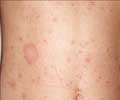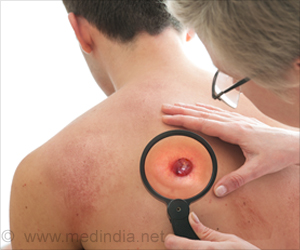Men who live alone face a higher risk of death from skin cancer melanoma compared with men who live with a partner, claims new study.

"We are able to show that living alone among men is significantly associated with a reduced melanoma-specific survival, partially attributed to a more advanced stage at diagnosis," said Hanna Eriksson from department of oncology-pathology at Karolinska Institutet in Sweden.
"Our study shows that this applies to men of all ages, regardless of their level of education and place of residence," Eriksson added.
By using the unique data from the Swedish Melanoma Register, researchers from Karolinska Institutet and Linkoping University made a detailed study of the link between the prognosis of cutaneous malignant melanoma and whether the patient lives alone or with a partner.
The researchers examined the risk of dying from melanoma among more than 27,000 melanoma patients in relation to their cohabitation status at the time of diagnosis.
The analysis looked into factors already known to affect the prognosis such as the characteristics of the tumour, gender, educational level and body site of the tumour was.
Advertisement
According to the researchers, one possible explanation, particularly for the men and older women diagnosed with melanoma in later stages, are differences in taking on board information about the disease.
Advertisement
Source-IANS















